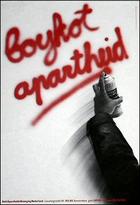 In 2003-2004, the Netherlands institute for Southern Africa (NiZA) commissioned the writing of a web dossier on the history of the Southern Africa solidarity movement from which it sprang. NiZA was formed in 1997 from the merger of the former Dutch Anti-Apartheid Movement (Anti-Apartheids Beweging Nederland, AABN), the Eduardo Mondlane Foundation (EMS) and the Holland Committee on Southern Africa (Komitee Zuidelijk Afrika, KZA). All three had a track record of supporting the liberation movements and various other groups in Southern Africa over many years.
In 2003-2004, the Netherlands institute for Southern Africa (NiZA) commissioned the writing of a web dossier on the history of the Southern Africa solidarity movement from which it sprang. NiZA was formed in 1997 from the merger of the former Dutch Anti-Apartheid Movement (Anti-Apartheids Beweging Nederland, AABN), the Eduardo Mondlane Foundation (EMS) and the Holland Committee on Southern Africa (Komitee Zuidelijk Afrika, KZA). All three had a track record of supporting the liberation movements and various other groups in Southern Africa over many years.
The web dossier 'The Netherlands against Apartheid 1948-1994' was revised in early 2009 on the occasion of the transfer of the archives of NiZA's predecessors to the International Institute of Social History in 2008 and is now also presented in English.
Apartheid
Apartheid reigned in South Africa for almost fifty years, from 1948 to 1994. The white government, representing only a small proportion of the population, erected a system of strict racial segregation - from park benches bearing the words Whites only/Slegs vir blankes, to laws determining who could live and work where and who could marry whom.
Racism and discrimination based on skin colour are by no means a South African invention. But the legally enforced apartheid system was. Apartheid, in the words of the United Nations, was a "crime against humanity".
The Netherlands
Were the white Afrikaners and the Dutch each other's kinsmen? Or did the Dutch extend their solidarity to the resistance movements in South and Southern Africa? The Netherlands did its share in the world-wide protest against apartheid and colonialism in Southern Africa, with a colourful mix of groups, committees and initiatives that had to deal with governments of different persuasions drifting back and forth between supporting and thwarting the solidarity movement.
